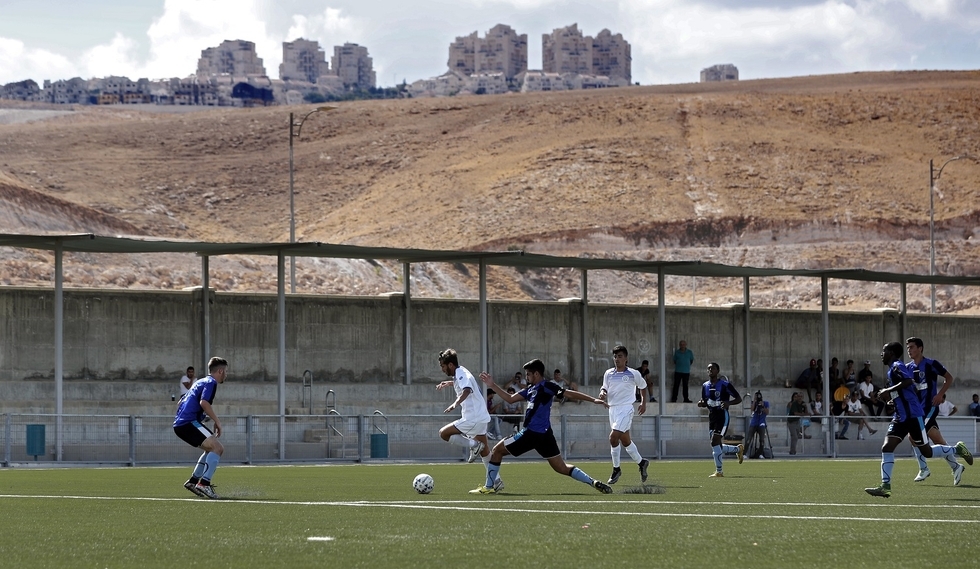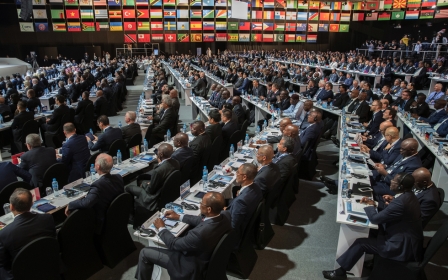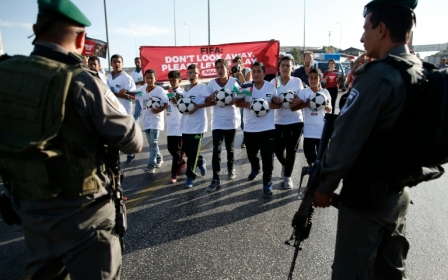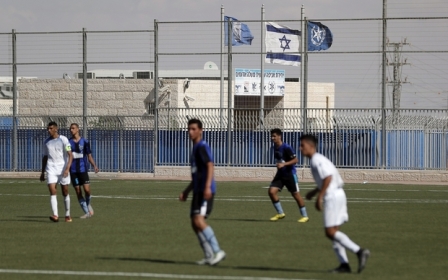FIFA delays vote on Israeli settlement football for fifth year

FIFA will delay another vote to determine whether the Israeli football association is allowed to hold games in illegal Israeli settlements in the West Bank.
The delay came after FIFA's council announced on Tuesday that a decision on the settlement clubs would be "premature".
FIFA's president, Gianni Infantino, won a 72 percent majority in the world governing body's congress to delay a decision on the issue for a fifth year, until March 2018.
This decision came before a proposed resolution by the Palestinian football association calling for the Israel Football Association to stop holding games in illegal settlements in the West Bank was discussed.
The territory occupied by illegal Israeli settlements are considered by FIFA to be part of the Palestinian association's territory.
Six Israel Football Association (IFA) clubs are based in settlements and host their official home matches there, on land that was unlawfully taken from and off-limits to West Bank Palestinians.
FIFA's statutes prohibit member associations from holding games on the territory of another member association without its permission.
Infantino's proposal now means that the decision on settlement clubs will be transferred to FIFA's council, a 31-member governing body led by the FIFA president himself.
Human Rights Watch, Avaaz, and European pro-Palestine lobby group EuMEP called for FIFA to bar the IFA from organising football activities in West Bank settlements,
Sari Bashi, who is the Israel and Palestine advocacy director at Human Rights Watch, said that Infantino's insistence on delaying the vote shows his determination for FIFA to not be in "compliance with basic principles of good governance and human rights".
She said the decision to delay "means FIFA will continue sponsoring games on stolen land, contrary to its statutes and human rights responsibilities".
When Russia occupied Crimea in 2014, FIFA’s European affiliate UEFA blocked Russia from incorporating teams from Crimea in its national league, on the basis of the same rule.
The Palestinian football association's president, Jibril Rajoub, told the FIFA congress that Israel's prime minister, Benjamin Netanyahu, tried to press FIFA to delay the vote.
Football's global governing body has been confronted by this issue since 2013.
In 2015, it appointed a special monitoring committee, chaired by Tokyo Sexwale, the South African politician and former candidate for FIFA president, to resolve the issue within a year.
Sexwale and Infantino requested an extension of the mandate, promising a decision by October 2016, then by January 2017, and then by March 2017.
He said in October 2016 that the issue was “almost in extra time”.
In a draft report he presented to the Israeli and Palestinian football associations in March 2017, Sexwale said that further negotiation over the issue would be futile, given the time elapsed and the gap between the parties and wrote, "What FIFA cannot avoid is taking a decision on this matter."
Infantino told the FIFA congress he had received Sexwale’s "final" report only yesterday.
Following the vote, he told a news conference that council members did not receive a written report from Sexwale in their Tuesday meeting and did not have a chance to study it.
Israel's settlements in the West Bank break the fourth Geneva convention and have been deemed illegal according to international law.
In April 2016, Professor John Ruggie authored a report for FIFA on how the body needs to entrench human rights across the federation’s operations.
Ruggie’s recommendations for FIFA are based on the United Nations Guiding Principles on Business and Human Rights, the global standard on business and human rights.
Middle East Eye propose une couverture et une analyse indépendantes et incomparables du Moyen-Orient, de l’Afrique du Nord et d’autres régions du monde. Pour en savoir plus sur la reprise de ce contenu et les frais qui s’appliquent, veuillez remplir ce formulaire [en anglais]. Pour en savoir plus sur MEE, cliquez ici [en anglais].




